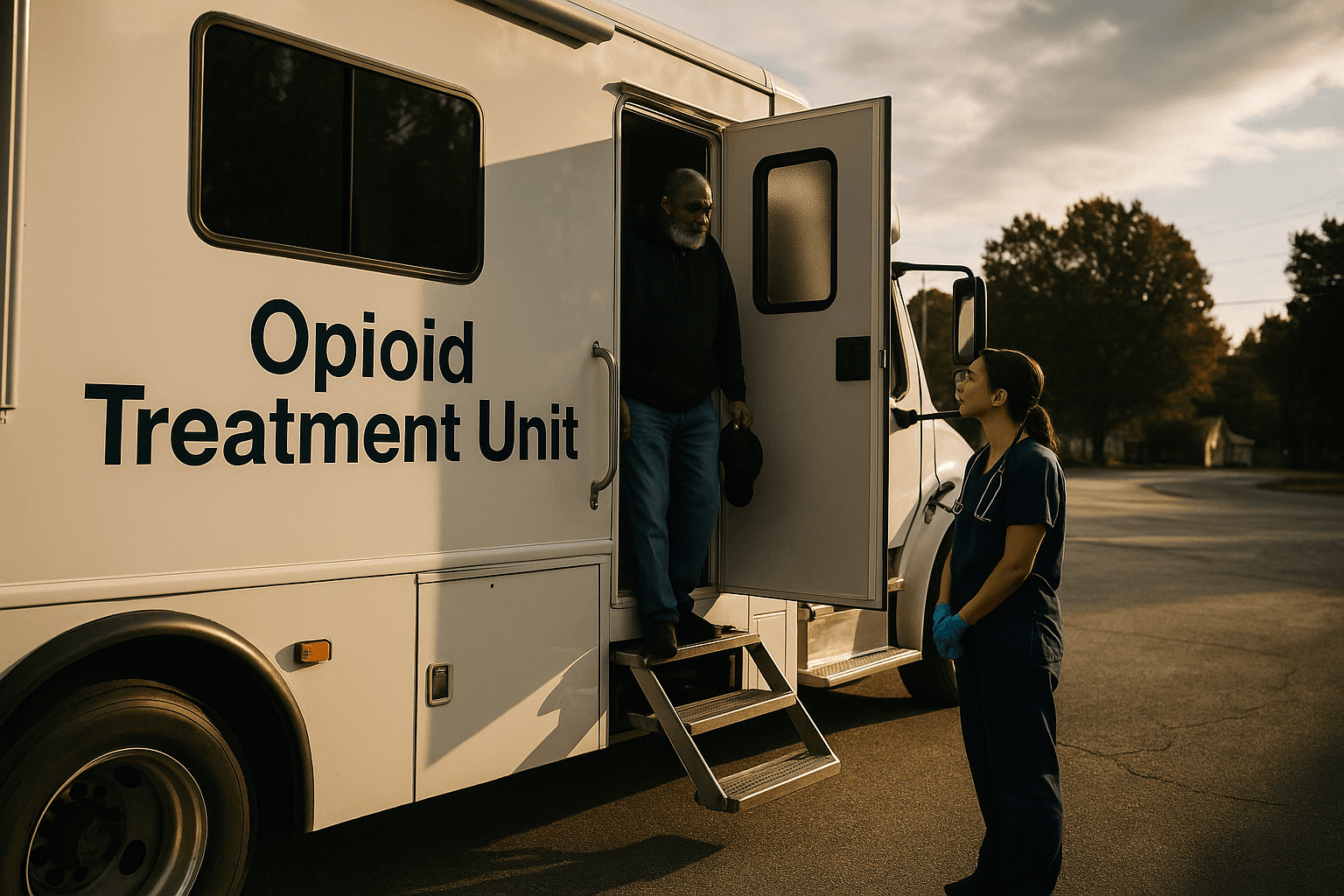Mobile Opioid Treatment Unit Opens in Greensboro, Expands Local Access
North Carolina launched its second Mobile Opioid Treatment Program in Greensboro, bringing Medication Assisted Treatment and telehealth services directly into parts of Guilford County starting mid November. The unit aims to reduce transportation and access barriers for people with opioid use disorder, and state officials say more mobile units may follow using disaster relief funds.

The North Carolina Department of Health and Human Services announced that the state opened its second Mobile Opioid Treatment Program in Greensboro, with services beginning on November 13, 2025. Operated by New Season Treatment Center as an extension of its Greensboro Treatment Center, the mobile unit provides Medication Assisted Treatment and telehealth services to people with opioid use disorder, bringing care into underserved parts of Guilford County and the broader Triad.
The unit is hosted at Bethel African Methodist Episcopal Church, 200 N. Regan St., and serves patients weekday mornings from 6:00 to 10:30 a.m. The location and schedule reflect a deliberate effort to reach clients who face transportation barriers, work early shifts, or lack nearby specialty treatment. State officials indicated the program is part of a broader strategy to increase retention in care by meeting patients where they live and travel.
State officials also said up to six additional mobile opioid treatment units could become operational by mid 2026. Funding for that expansion is expected to come from Hurricane Helene relief funds administered through Vaya Health. The announcement positions mobile units as a flexible use of disaster relief dollars to address ongoing public health crises, including the opioid epidemic that continues to affect Guilford County communities.

Medication Assisted Treatment combined with counseling and peer support is recognized by health authorities as the gold standard for treating opioid use disorder. Mobile units can reduce delays in starting treatment, improve continuity of care for people with unstable housing or limited transit options, and lower barriers for those who have faced stigma accessing clinic based services. For local residents, expanded mobile access may translate to earlier intervention, fewer overdose events, and stronger linkages to long term recovery services.
The mobile unit partnership with Bethel AME Church highlights the role of community institutions in health care delivery. As the state moves toward a potential fleet of mobile programs, officials and community leaders will need to address capacity, transportation equity, and sustainable funding to ensure services reach the neighborhoods most affected by opioid harm.


